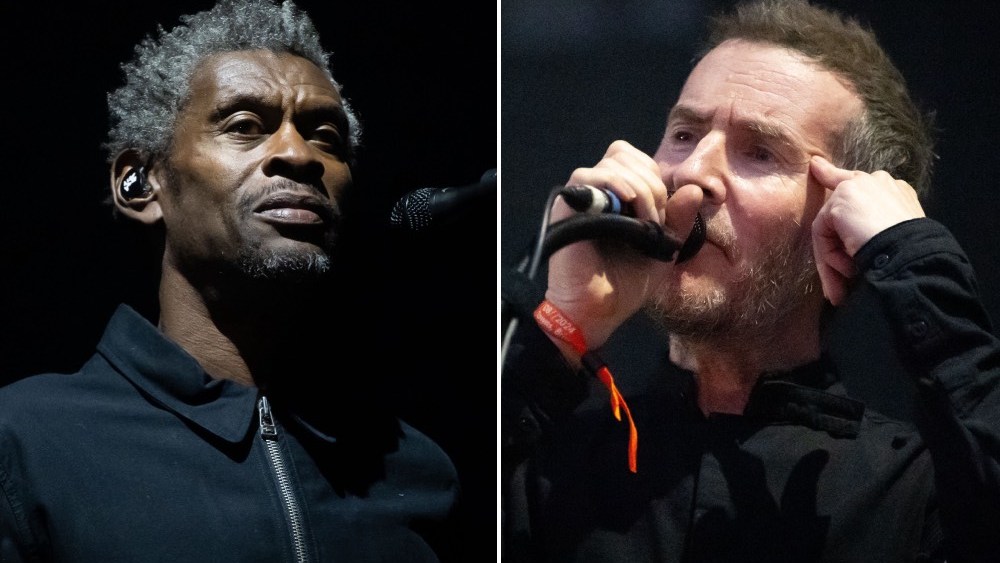Massive Attack Declines Coachella Invitation, Citing Festival's Environmental Concerns
2024-12-17 23:13:18
Instructions

Massive Attack has announced that they have declined an invitation to perform at next year's Coachella festival, citing concerns over the event's sustainability practices. The renowned British band expressed their commitment to environmental issues, emphasizing the need for festivals to adopt more responsible and sustainable approaches.
In their statement, the group highlighted the importance of addressing climate change and criticized the festival industry for its ecological impact. They believe that large events like Coachella can do better in prioritizing sustainability in their operations.
This decision aligns with Massive Attack's long-standing advocacy for better environmental practices within the music industry. As festivals gather immense crowds and generate considerable waste, the band urges event organizers to implement effective strategies to minimize harm to the planet.
Rather than participating in an event that does not meet their sustainability standards, Massive Attack continues to advocate for change and encourages other artists to consider the environmental implications of their performances as well.
Massive Attack's Bold Move: Rejecting Coachella Over Sustainability Issues
In a striking statement to the music industry, the iconic band Massive Attack has officially declined an invitation to perform at next year's Coachella festival, citing concerns over the event's sustainability policies as their primary reason.Championing the Environment: A Call for Festival Accountability
Massive Attack's decision to step back from one of the most popular music festivals in the world underscores a significant shift in the entertainment landscape, where environmental responsibility is becoming a priority for artists and fans alike. The group's commitment to sustainability is well-documented and has been part of their ethos for years. This stance not only illustrates their dedication to eco-friendly practices but also sets a powerful precedent for other acts and festivals to follow suit.
By denying their participation in Coachella, Massive Attack is sending a clear message that mere lip service to sustainability measures is no longer acceptable. Festivals, especially high-profile ones like Coachella, draw massive crowds and generate substantial carbon footprints; thus, it is imperative for these events to adopt more rigorous environmental standards. As public awareness of climate change escalates, artists are leveraging their influence to advocate for change, putting pressure on festival organizers to implement sustainable practices.
Behind the Decision: Massive Attack's Environmental Mission
The band has long been vocal about their environmental advocacy, utilizing their platform to raise awareness about pressing ecological issues. Their hesitation to perform at Coachella reflects a broader trend among artists who are increasingly unwilling to compromise on their values for the sake of commercial opportunities. This kind of activism is not just admirable; it can be transformative, influencing how fans perceive and engage with sustainability in the music industry.
Massive Attack’s approach to environmental consciousness includes not only the reduction of waste but also advocating for renewable energy solutions and sustainable logistics at all levels of production. Their proactive stance urges not only fans but also peers in the music scene to consider the environmental impact of their actions and choices, promoting a culture of ecological responsibility that extends beyond performances.
Sustainability Challenges in Major Festivals
Festivals like Coachella face immense pressure to showcase an eco-friendly image, yet the reality often falls short. The logistics of managing thousands of attendees, food services, and transportation inevitably leads to significant waste generation and resource consumption. While some improvements have been made, such as the introduction of recycling programs and organic food vendors, these steps are often seen as inadequate by environmentally conscious artists.
This is where the voice of bands like Massive Attack plays a critical role. They serve as catalysts for discussions that highlight the disparities between festival marketing campaigns that tout "green" initiatives and the effectiveness of these measures. As artists take a stand against complacency, it opens the door to a deeper dialogue about how music festivals can evolve and adapt in response to ecological concerns.
Artists Leading the Charge: A New Era of Responsibility
The refusal from Massive Attack can be viewed as part of a larger movement among musicians who are prioritizing environmental integrity in their artistic careers. This shift is not limited to the refusal of gigs, but also includes collaborations with environmental organizations and increased investments in sustainable practices within their concert infrastructure. The ripple effect of such decisions fosters an ecosystem wherein sustainability is not just an add-on but becomes a core element of an artist's brand.
Moreover, the demand for sustainable events is not just coming from artists; fans are increasingly becoming advocates for change. As audiences grow more eco-conscious, they are more likely to support artists who share their values by attending performances that align with their beliefs. This could create a new economic paradigm in the music industry, where sustainability drives consumer choices and influences festival lineups.
The Future of Music Festivals: Navigating Sustainability and Popularity
As the conversation around climate change intensifies, the pressure on festivals like Coachella to adapt their practices will only increase. This offers a unique opportunity for festival organizers to rethink their strategies and consider how they can genuinely engage with sustainability. Initiatives may include carbon offset programs, water conservation efforts, and commitments to zero waste events.
The repercussions of Massive Attack's decision could lead to an industry-wide reckoning, where festivals become platforms not just for music but for cultural change. By aligning with artists committed to sustainability, festivals can enhance their reputations and attract a conscientious audience, paving the way for a more responsible future in live music.
